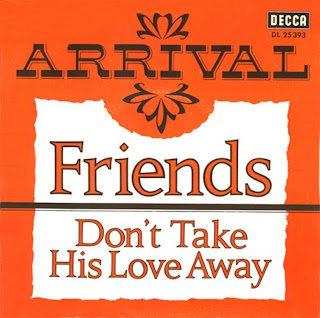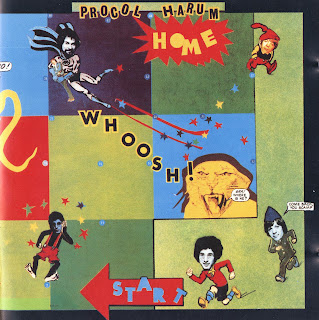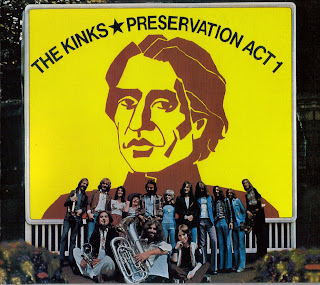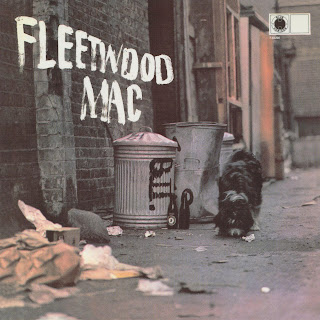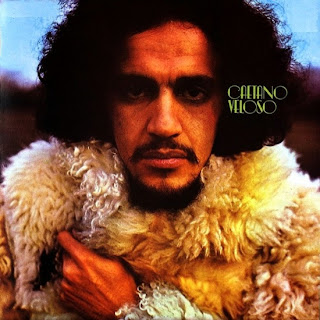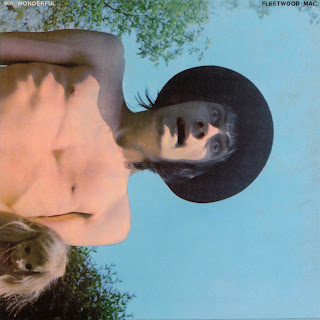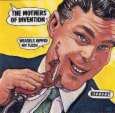
Best remembered for the smash "Groove Me," New Orleans soul singer
King Floyd was born in the Crescent City on February 13, 1945, and raised in nearby Kenner, LA. He began singing on street corners while in his early teens, befriending local musicians like
Earl King and
Willie Tee. With the aid of New Orleans blues legend
Mr. Google Eyes,
Floyd landed his first paying gig at the Bourbon Street club Sho-Bar in 1961, although his fledgling career was soon put on hold by military duty. Following his army discharge in late 1963,
Floyd migrated to New York City, signing with booking agents Shaw Artists and regularly performing throughout Manhattan. He also began writing songs, encouraged by the likes of
Don Covay and
J.J. Jackson. After about a year he resettled in Los Angeles, befriending another New Orleans expatriate, composer/arranger
Harold Battiste. Through
Battiste,
Floyd met DJ Buddy Keleen, who in turn brought him to the Original Sound label, which in 1965 issued his debut single, "Walkin' and Talkin'."
Floyd's debut LP, the
Battiste-arranged King Floyd: A Man in Love, followed on the Mercury subsidiary Pulsar in 1967; the album went nowhere, and as he was barely making ends meet as a songwriter, he finally returned to New Orleans in 1969.
Now a family man,
Floyd accepted a post office job upon returning home, but within a month he ran into producer
Wardell Quezerque, then a staffer at Malaco Records. On May 17, 1970, they traveled to Malaco's Jackson, MS, studios to cut "Groove Me," recorded in just one take at the same session that would also yield another
Quezerque-produced blockbuster,
Jean Knight's "Mr. Big Stuff."
Floyd wrote "Groove Me" while working in an East L.A. box factory in honor of a young college girl on staff. He was set to give her the lyrics on the morning she abruptly quit, and he never saw her again. With
Quezerque's assistance, he transformed the song into a deeply funky, percolating jam somewhere between the best of
James Brown and
Otis Redding, but ironically, the song first appeared on the Malaco subsidiary Chimneyville as merely the B-side of
Floyd's soulful "What Our Love Needs." Only when New Orleans DJ George Vinnett flipped the record over did "Groove Me" begin meriting the attention it deserved, and as the record emerged as a local smash, Atlantic scooped up national distribution rights. "Groove Me" went on to top the Billboard R&B charts and hit number six on the pop charts, going gold on Christmas Day of 1970. Needless to say,
Floyd quit his civil service gig and went on a national tour, returning to the R&B Top Ten early in 1971 with the follow-up "Got to Have Your Love," culled from his self-titled Atlantic LP.
Creative differences quickly undermined
Floyd's relationship with
Quezerque, however, and subsequent efforts, including the fine 1973 LP
Think About It, attracted little attention. In a surprise move, Atlantic then issued as a single "Woman Don't Go Away" from the 1971
King Floyd album, earning a gold record three years after the song's original appearance. But Atlantic's agreement with Malaco soon ended, and the latter signed a new distribution deal with Miami-based TK, which also assumed
Floyd's production reins for 1975's Well Done, which featured the minor hit "I Feel Like Dynamite." He split with Malaco soon after, landing with Mercury's Dial subsidiary for a one-off single titled "Can You Dig It?"; at the same time, Malaco issued Body Language, a collection of his unreleased recordings for the label. The emergence of disco left few outlets for
Floyd's staunchly Southern brand of soul, and in 1978 he returned to L.A. in an attempt to reignite his career and battle some personal demons; upon coming back to Kenner three years later, he mustered up a few local gigs, and in 1982 spent a month touring South Africa.
Floyd spent the remainder of the next two decades drifting in and out of the music industry, finally releasing a new Malaco effort,
Old Skool Funk, in 2000. AMG.
listen here
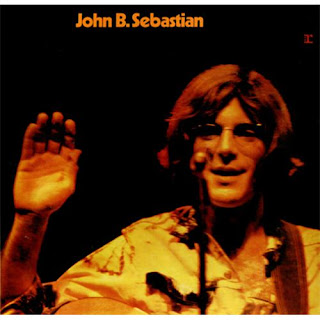 When he led the Lovin' Spoonful from 1965 to 1967, John Sebastian experimented with a variety of styles, expanding from the folk, jug band, and rock & roll that were the band's basic mixture to include everything from country ("Nashville Cats") to orchestrated movie scoring ("Darling, Be Home Soon"). Freed from the confines of a four-piece band, he stretched further on his debut solo album, including the samba-flavored "Magical Connection" and the R&B-styled "Baby, Don't Ya Get Crazy" (complete with the Ikettes on backup vocals) in addition to traditional country on "Rainbows All Over Your Blues," which spotlighted Buddy Emmons on pedal steel guitar. But there were also delicate ballads like the string-filled "She's a Lady," a stripped-down remake of "You're a Big Boy Now," and "The Room Nobody Lives In," the last performed with only a harmonium and bass guitar. And there were pop/rock songs like "Red-Eye Express," "What She Thinks About," and the utopian "I Had a Dream" that you could imagine having fitted easily into the Spoonful's repertoire. The songs continued Sebastian's trend toward a more personal writing style, many of them containing images of travel that corresponded to his peripatetic lifestyle. Like Paul McCartney's McCartney, which followed it into the marketplace by a few months, the album was an eclectic but low-key introduction to the solo career of a former group member whose band was known for more elaborate productions, and all the more effective for that. (John B. Sebastian was the subject of a legal dispute between MGM records and Reprise records, with Reprise winning out, although MGM briefly issued its own version of the LP, apparently taken from a second-generation master. The MGM version is sonically inferior to the Reprise one and has different artwork, but the contents of the two LPs are identical.) AMG.
When he led the Lovin' Spoonful from 1965 to 1967, John Sebastian experimented with a variety of styles, expanding from the folk, jug band, and rock & roll that were the band's basic mixture to include everything from country ("Nashville Cats") to orchestrated movie scoring ("Darling, Be Home Soon"). Freed from the confines of a four-piece band, he stretched further on his debut solo album, including the samba-flavored "Magical Connection" and the R&B-styled "Baby, Don't Ya Get Crazy" (complete with the Ikettes on backup vocals) in addition to traditional country on "Rainbows All Over Your Blues," which spotlighted Buddy Emmons on pedal steel guitar. But there were also delicate ballads like the string-filled "She's a Lady," a stripped-down remake of "You're a Big Boy Now," and "The Room Nobody Lives In," the last performed with only a harmonium and bass guitar. And there were pop/rock songs like "Red-Eye Express," "What She Thinks About," and the utopian "I Had a Dream" that you could imagine having fitted easily into the Spoonful's repertoire. The songs continued Sebastian's trend toward a more personal writing style, many of them containing images of travel that corresponded to his peripatetic lifestyle. Like Paul McCartney's McCartney, which followed it into the marketplace by a few months, the album was an eclectic but low-key introduction to the solo career of a former group member whose band was known for more elaborate productions, and all the more effective for that. (John B. Sebastian was the subject of a legal dispute between MGM records and Reprise records, with Reprise winning out, although MGM briefly issued its own version of the LP, apparently taken from a second-generation master. The MGM version is sonically inferior to the Reprise one and has different artwork, but the contents of the two LPs are identical.) AMG.











